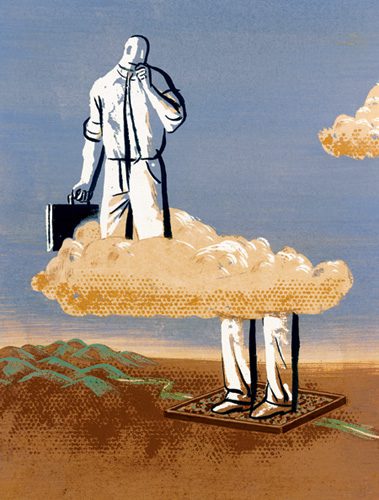Good leaders can harness the enormous power of business to make a positive difference in the world.
Good leaders can harness the enormous power of business to make a positive difference in the world.
In recent years, the business world has been rocked by scandal. Names like Enron, Tyco, and Barclays have become synonymous with broken moral compasses. During this time I have been a professor and leader in various business schools, where students increasingly say to me, “I don’t want to be like those business people—they are greedy, selfish, and harmful to individuals and communities. I want to do good in the world, so after my degree in business, I am going to work in a nonprofit, in government, or in an NGO.”
My response is that nonprofits and NGOs are not the only place where you can do good. I want to share with you how you can lead in business and make a positive difference in the world.
At the University of Michigan Ross School of Business, we have identified four attributes of leaders who have a positive impact on others: empathy, courage, integrity, and drive.
Empathy is at the core of leadership. Leadership is not about you, it’s about the people you lead. To be an effective leader, you first must understand the people you lead—their interests, their concerns, and their motives. Given their interests, concerns, and motives, how can you work with them—not direct them, not order them—to help them be their very best selves in service of the goals of the organization?
The second attribute is courage. Leadership is a lot of mundane action punctuated by moments where you can clearly make a real difference. In my experience, those moments require courage—they require you to do something that needs to be done but that no one else is willing (or perhaps able) to do.
The third attribute is integrity. The Latin word for integrity is integritas from the word integer, meaning complete or whole. In addition to doing the right thing, integrity means that you should act so that your whole set of activities could be made visible to anyone at any time. Obviously, some things require confidentiality to protect others. However, if you find yourself wanting to keep things secret not to protect others but to protect yourself from scrutiny, this is a sign of a lack of integrity.
The final attribute of a leader appears first in many writings on leadership, but I think it should operate in the service of empathy, courage, and integrity, so I place it last. That fourth element is drive.
As a leader you will encounter many complex and difficult problems. Those problems will require effort to solve, sometimes extraordinary effort. But drive is not just working harder than others. It means working in a more flexible and resilient manner. It’s not just doing more; it’s doing things differently.
I like to think of these key leadership attributes as four ways of seeing: Having empathy is seeing the good in others; having courage is seeing the need and meeting it; having integrity is seeing the whole; and having drive is seeing the possible.
As you develop these attributes, you can become a leader who can harness the enormous power of business to make a positive difference in the world. The largest corporations have more power and resources than many nations and governments, and many corporations are able to use that power and those resources more effectively and more nimbly than governments. For that reason, society’s greatest problems will not be solved without engaging government, civil society, and business. Whether we are talking about clean water, sustainable agriculture, affordable housing, accessible education, or reliable transportation—if these problems are going to be solved, business needs to be part of the solution.
If you look around today, you will see many examples of businesses that are making a positive difference in the world. You don’t have to choose between doing business and doing good. You can, indeed, do both.
Alison Davis-Blake is the dean of the Ross School of Business at the University of Michigan. This essay is adapted from a forum address delivered Nov. 13, 2012, in the Marriott Center. You can watch or listen to the full address at speeches.byu.edu.










